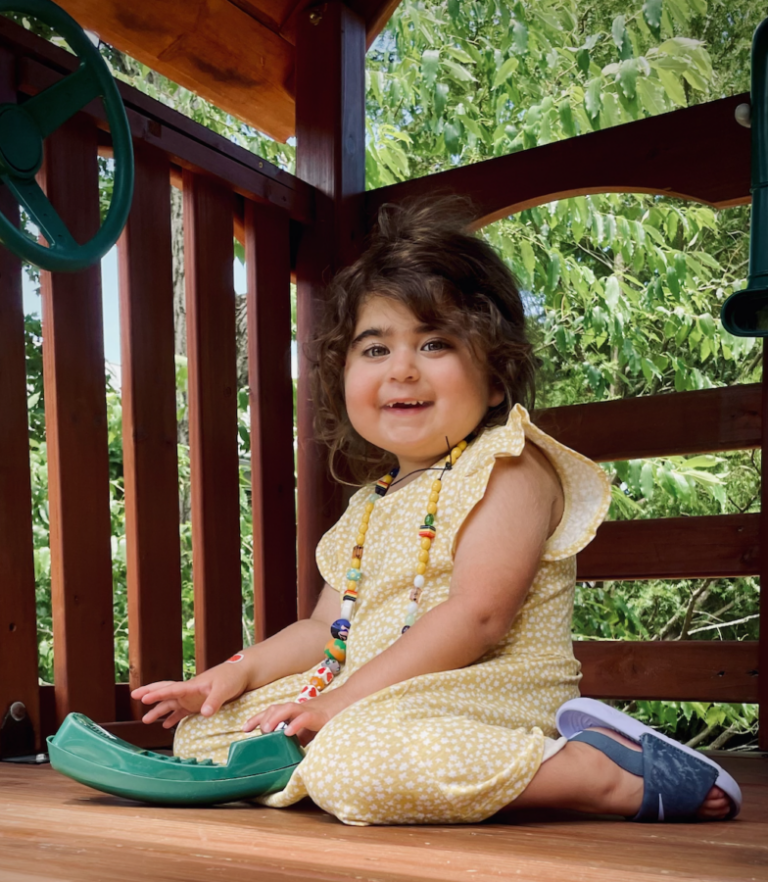Written by Ronny Bachrach
July is Juvenile Arthritis (JA) awareness month and I’m grateful to have this opportunity to share a little bit about it. You might be surprised at some of the similarities and how sometimes oncology and rheumatology clinical paths may cross.
Juvenile arthritis is an umbrella term for multiple types of autoimmune and auto inflammatory diseases that impact about 300,000 children in the United States. Autoimmune and auto inflammatory diseases mean the body is working against itself and creating inflammation in the body. Most types of JA create inflammation in joints causing pain, but in some types of JA, the inflammation happens in the organs like the liver, spleen, lungs, and skin.
There is no cure for any type of JA. The main treatment objective is to protect the organs and joints from inflammation, reduce pain, and manage the long term effects of the treatments. Some children are lucky enough to experience unmedicated remission, while others are able to find sustainable treatments for medicated remissions. And, unfortunately, other kids suffer from refractory disease that’s constantly needing new and inventive treatments and combinations of treatments to manage inflammation.
Not all of the medication options available are safe for long term use, like high dose steroids. Because of this, and the stubborn illness, a smaller number of kids (with SJIA) undergo strong chemotherapy with or without a bone marrow transplant to give their immune system a hard reset.
My three-year-old daughter Sam has a rare type of arthritis called systemic idiopathic arthritis (SJIA), which makes up about 10-20% of children with JA.

Sam was diagnosed several months shy of her second birthday. She had a sustained fever and worsening rash for two weeks that brought us to the ER. Because SJIA is considered a clinical diagnosis of exclusion, it requires multiple specialties to consult, countless blood tests, a bone marrow biopsy, a lumbar puncture, and various types of imaging.
We are lucky to be treated at the top children’s hospital in the country with renowned pediatric rheumatologists. Sam’s diagnosis took one week and we are extremely lucky that’s all it took. Other children go for months with no diagnosis or being misdiagnosed. In fact, not all states in the US even have pediatric rheumatologists.
Sam was initially treated with a biologic, steroids, and a chemo called methotrexate, along with a cast of supporting meds. But with her three main medications, she was both immunosuppressed and immunocompromised, meaning not only was her immune system working against itself, but she was also taking medicine to make it less effective in protecting itself from foreign invaders like bacteria and viruses.
Sam was also diagnosed with interstitial lung disease (ILD), a not uncommon complication of
SJIA, and several other rheumatological diseases. During the course of weaning her immune suppressing medication, she began to flare. JA and specifically SJIA flares can be triggered by viruses, med changes, stress, overexertion, and countless other reasons, making it tricky to be able to pinpoint the cause and avoid it in the future.
This flare was more severe than her illness at initial diagnosis and she developed a severe and life-threatening complication known as macrophage activation syndrome (MAS), which is very similar to hemophagocytic lymphohistiocytosis (HLH) from the heme/onc world.
After a two-month admission, she left the hospital on a different trio of immunosuppressants, including cyclosporine, that’s used commonly with transplant, Ruxolitinib, that’s a chemotherapy used in cancer treatment, and again, on a big/unsustainable dose of steroids.
Sam, like many oncology patients, is high risk. SJIA and other forms of arthritis are often treated with immunosuppressants like steroids, biologics, and T cell moderators that are used after transplant and chemo like methotrexate.
In Covid times, we have to be extremely cautious. We mask indoors everywhere, always. We limit outdoor activities to less crowded venues. When we meet with friends outside, we have to make sure no one has been sick recently. Even if Covid never happened, we would still be masking and have to take extreme measures to keep Sam safe.
Today, she receives multiple meds via IV every third week, and more than ten daily oral meds at home. Her primary doctor is a rheumatologist but she is followed by multiple specialists that require regular clinic visits. She’s relatively stable but we take things day by day and hope for the best.
We are grateful to Ronny for sharing Sam’s story with our readers. If you or someone you know needs help navigating juvenile arthritis, contact our team today.


